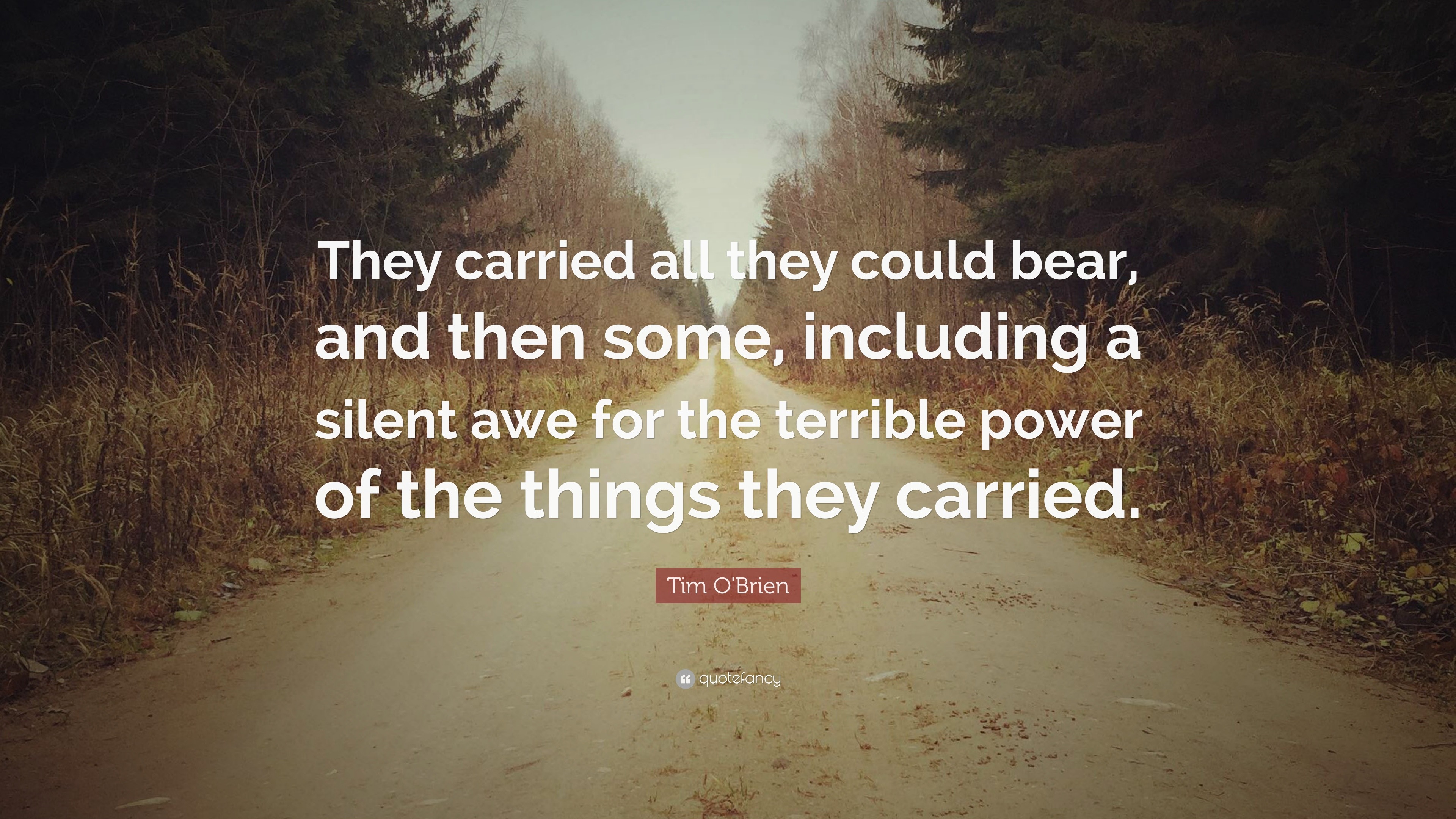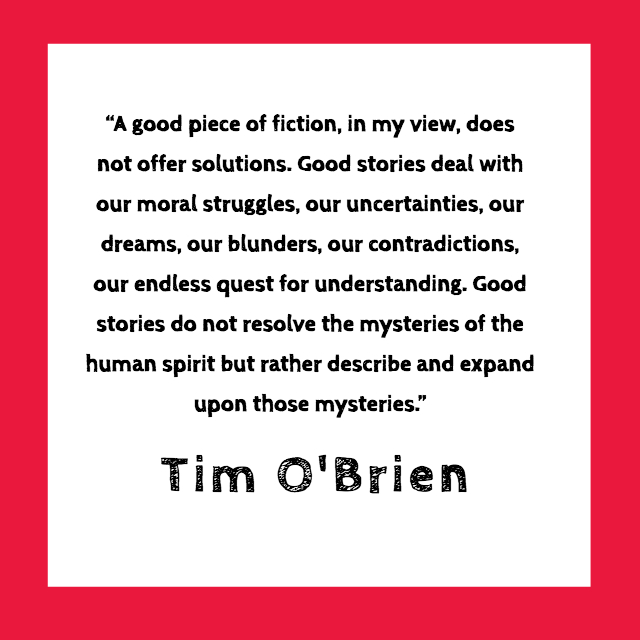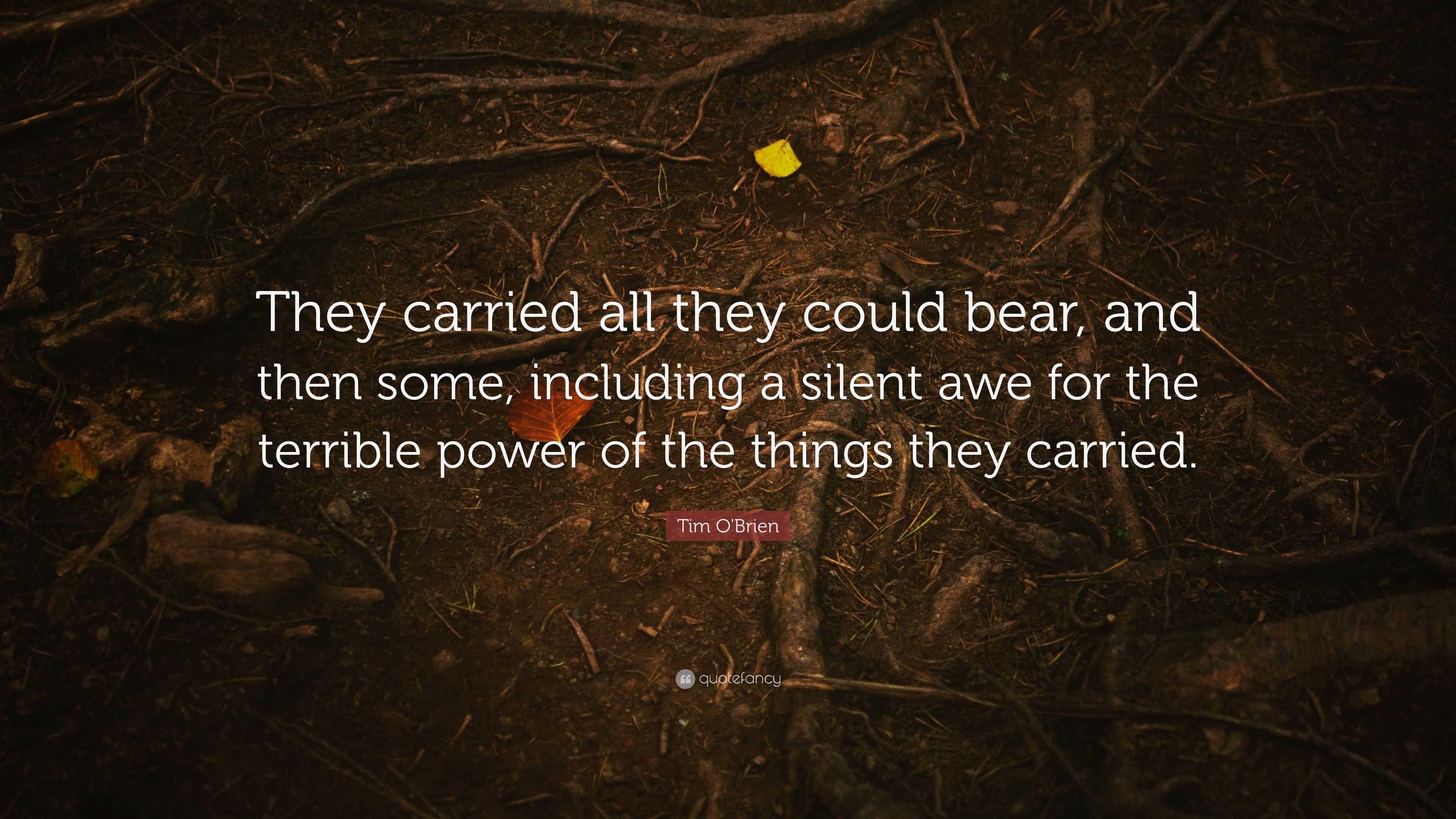
All around you things are purely living, and you among them, and the aliveness makes you tremble. After a firefight, there is always the immense pleasure of aliveness.

At its core, perhaps, war is just another name for death, and yet any soldier will tell you, if he tells the truth, that proximity to death brings with it a corresponding proximity to life. “To generalize about war is like generalizing about peace. The old rules are no longer binding, the old truths no longer true.” “For the common soldier, at least, war has the feel-the spiritual texture-of a great ghostly fog, thick and permanent. “In war you lose your sense of the definite, hence your sense of truth itself, and therefore it’s safe to say that in a true war story nothing is ever absolutely true.” Like a killer forest fire, like cancer under a microscope, any battle or artillery barrage has the aesthetic purity if absolute moral indifference – a powerful, implacable beauty – and a true war story will tell the truth about this, though the truth is ugly.” You admire the fluid symmetries of troops on the move, the harmonies of sound and shape and proportion, the great sheets of metal-fire streaming down from a gunship, the illumination rounds, the white phosphorous, the purply orange glow of napalm, the rocket’s red glare.

You crouch in ambush as a cool, impassive moon rises over the nighttime paddies. You stare out at tracer rounds unwinding through the dark like brilliant red ribbons. For all its horror, you can’t help but gape at the awful majesty of combat. It can be argued, for instance, that war is grotesque. Now and then, however, there were times of panic, when they squealed or wanted to squeal but couldn’t, when they twitched and made moaning sounds and covered their heads and said Dear Jesus and flopped around on the earth and fired their weapons blindly and cringed and sobbed and begged for the noise to stop and went wild and made stupid promises to themselves and to God and to their mothers and fathers, hoping not to die.” “For the most part they carried themselves with poise, a kind of dignity. O’Brien’s words will enter your hearts and minds and hopefully, lead you to read every word The Things They Carried. By signing up you agree to our terms of useĬonsider reading these eight selections from Tim O’Brien’s masterpiece. Thank you for signing up! Keep an eye on your inbox. Last year, Tim O’Brien and The Things They Carried had a prominent role in the Ken Burns and Lynn Novick’s ten-part documentary on the Vietnam War. The Things They Carried was a finalist for the Pulitzer Prize and The National Book Critics Circle Award. Since its publication in 1990 by Houghton Mifflin, The Things They Carried received immediate critical attention and has been on the reading lists of innumerable high school and university courses. The Things They Carried will be read as long as people can read.

The Things They Carried is a collection of eleven short stories told in a transcendent and understated manner, O’Brien relays the truth, beauty, and horror that is war. Tim O’Brien wrote The Things They Carried to answer the silence and the ignorance O’Brien encountered when he returned to his Minnesota hometown after serving in Vietnam as a Marine in Alpha Company.
#Tim obrien quotes tv
The TV images have remained seared in my mind, but I didn’t understand anything about being an American combat soldier in the Vietnam War until I read The Things They Carried by Tim O’Brien. Throughout my elementary school years, television’s beloved anchorman Walter Cronkite brought the Vietnam War into America’s living rooms. I am a left coast native and writer my working life began after studying at San Francisco State University I have been an office worker and a labor organizer longtime freelance writer covering books and labor and assorted cultural and political issues.


 0 kommentar(er)
0 kommentar(er)
